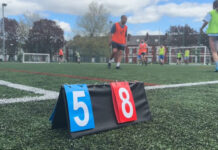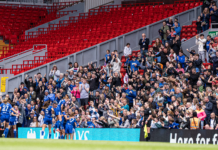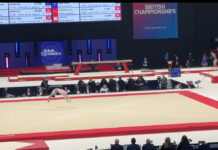When Mo Salah scored the fourth goal of Liverpool’s 5-1 victory over Tottenham Hotspur, the game that sealed their 20th league title, he created one of the defining images of the season with his celebration.
The prolific Egyptian striker, one of the club’s modern greats, ran to the Kop and dropped to his knees, before taking a fan’s phone and snapping a selfie with the celebrating masses behind.
A quick scan of the crowd in Salah’s now legendary selfie reveals a diverse crowd in the Kop, with men and women of all ages celebrating the historic moment with their hero.
— Mohamed Salah (@MoSalah) April 27, 2025
Jacqui McAssey is a Liverpool FC fan, senior lecturer at Liverpool John Moores University and the founder of Girlfans, a series of creative initiatives, including a print zine, which aims to foster a sense of belonging and boost the visibility of female football fans.
McAssey was photographing fans outside Anfield in the build-up to Liverpool’s title win and sharing in the carnival atmosphere.
Twelve years on from Girlfans‘ inception in 2013, McAssey reflected on the unrecognisable changes to football culture in that time in the aftermath of Liverpool’s latest triumph.
Jacqui McAssey on founding Girlfans
Although Liverpool won the Premier League title in the COVID-affected 2019/20 season, this year’s title win was the first with fans present in the stadium since Kenny Dalglish led the Reds to the old First Division title in 1990/91.
The TV highlights of this triumph capture a perfect image of football culture at the time, as a man with a moustache, cigarette in one hand and a portable radio held to his ear, watches anxiously in a perfect contrast to Salah’s selfie.
When she founded Girlfans, McAssey wanted to challenge the perception of the ‘typical’ football fan.
She explained: “I started to think about my two kind of loves in a way.
“I taught Fashion Promotion and Fashion Image Making at my previous institution, the University of Central Lancashire.
“At the time I don’t think there was a lot of interest in the crossover with football, unless it was in sports science or sociology.
“Looking at research from that period as well, most of the research around football in this country was around hooliganism and was looking back to the 80s.
“So, I got a very small amount of funding and thought, I’ll try something else that fuses both of those things together.
“I knew that I wanted to create something in the format of a zine and that it would be about women going to football.
“So, like any good research, you just start off with a curiosity.
“I stood outside Anfield before kick-off, for about an hour, and watched people going into the ground.
“It was only then I thought there are more women going in than I thought there would be.”
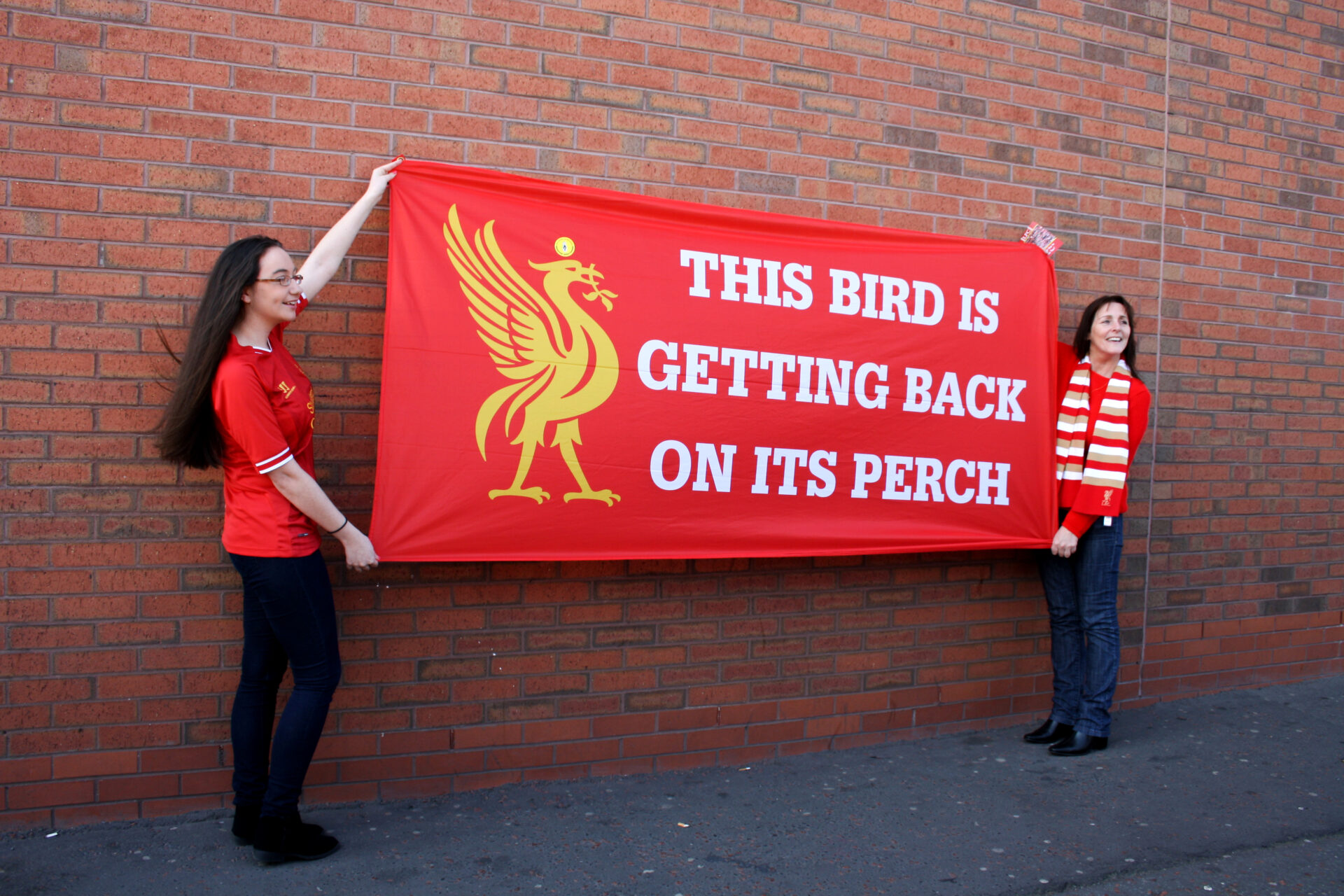
‘The landscape is so different. It’s night and day’
This seed of an idea, backed by extensive academic research into how female fans engage with football, grew into a series of projects with football clubs across the football pyramid, from Manchester City to Bury FC.
In the 12 years since Girlfans‘ inception, McAssey has noticed a significant change in the visibility of women in football, both on the terraces and in the media.
“I began the research and it ended being an ethnographic study of fans.
“So it wasn’t me going to like one match and taking photographs, it was a whole season.
“We wanted to dig a bit deeper by returning to that same space to photograph women and girls.
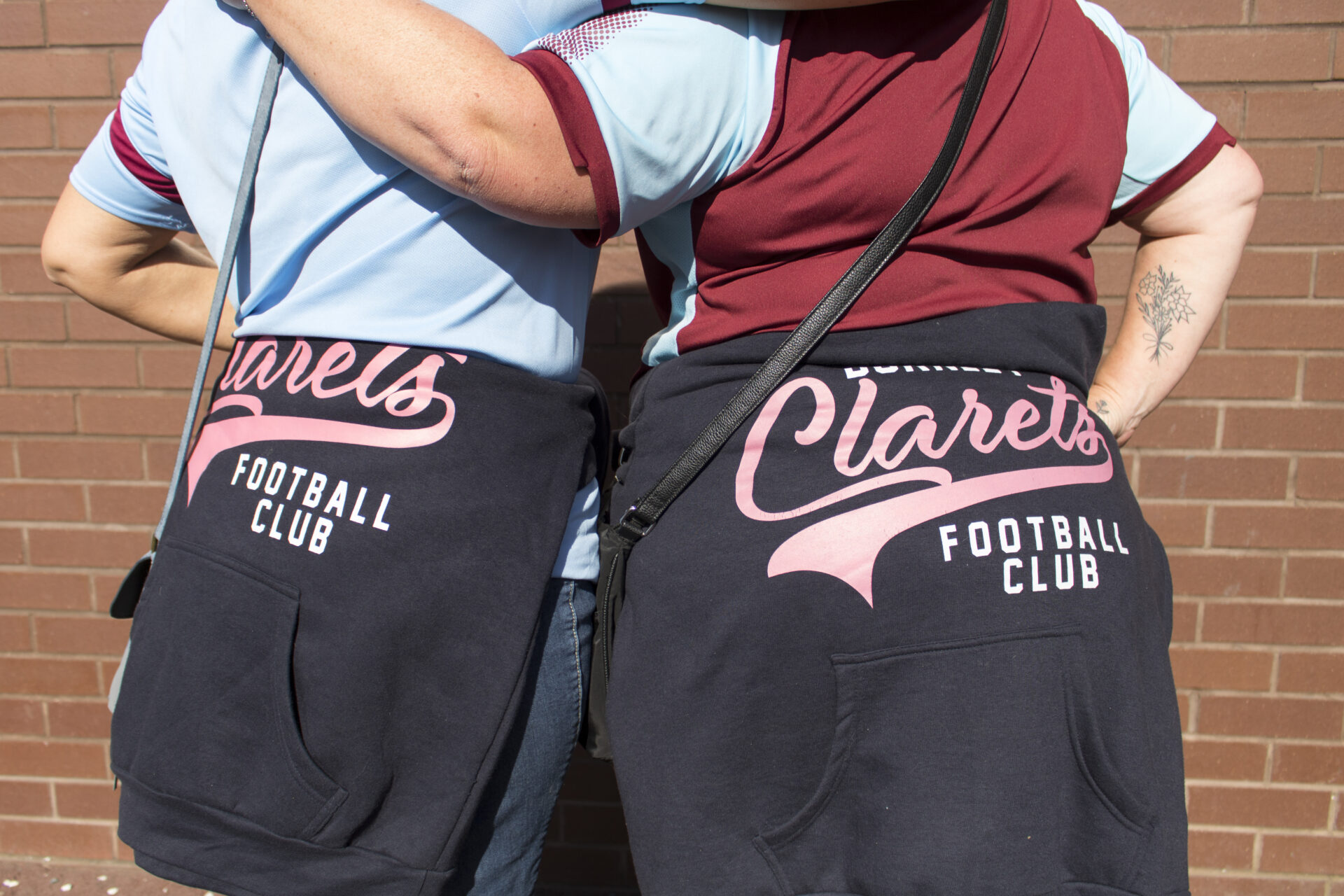
“And from that, I suppose it really caught the imagination of other platforms, publications, fashion and style, magazines, radio, Sky Sports, a whole host of people.
“I think just being fascinated by the lens that had been directed towards women, which 12 years later is just like, it’s just not a thing now.
“You see it on those little idents now all the time, especially on television and Sky.
“And women are very much part of visual culture. I think, specifically, since Instagram took off, the sight of a woman, like performing their own fandom in a football shirt, posting their own images, just really became commonplace.
“So, the landscape is so different. It’s night and day, the difference in that actual landscape, especially in like sports media.
Who Are Ya? is an exhibition of football photography by women photographers, presented in multiple venues across Liverpool.
Francesca Scandella’s #Inter series is on display at @ropesandtwines, L1 4HR.
Curated @zoehitchen, produced @olioligraham for Get Your Kits Out Festival pic.twitter.com/kEIq6LGiiV
— Jacqui McAssey (GIRLFANS/FEMORABILIA) (@jacquimcassey) October 7, 2024
Bury FC project is a Girlfans highlight
McAssey’s long-term creative collaborator Zoe Hitchen has played an important role in the Girlfans project.
When Hitchen’s beloved Bury FC were threatened with bankruptcy and expulsion from the Football League, she curated an exhibition which captured the memories and experiences of Bury fans as the club faced the prospect of going out of business.
McAssey and Hitchen produced a Girlfans zine in which they captured powerful images of Bury’s female fans, which included a shoot inside an empty Gigg Lane.
For McAssey this project remains a personal highlight.
“I think what is really nice when you when you do when you do a similar project, because they’re not all exactly the same,” McAssey explained.
“But they still retain a theme, we go to the stadium and we photograph people, we talk to people, and then you find this common ground.
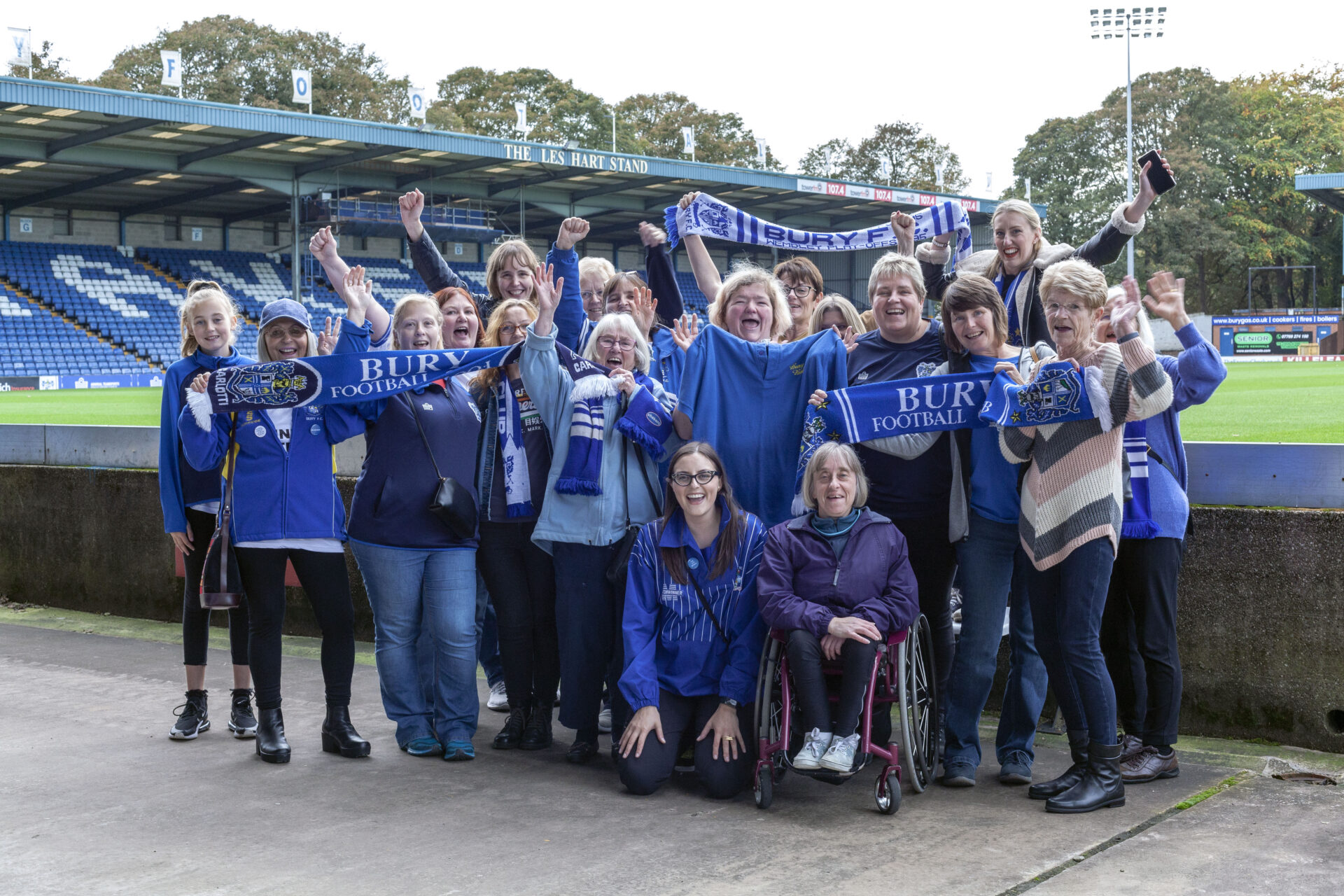
“The common ground usually is, between all fans, all women, is they just want the same things as men.
“There’s no difference in that sense. How they may be perceived or treated might be different.
“But they all love the club. Usually know a lot about it. The team, the manager, everything, their history, the rules.
“The Bury zine was special. Getting into Gigg lane when they’d been expelled from the league.
“Working on that, working with those amazing women, getting back into the ground and just seeing what football meant to them, how important that community was.”
‘There is no question that they do belong in football’
For McAssey, the most important change during the lifespan of the project has been the increased acceptance of women at football games.
The overarching goal of Girlfans was to help female fans to feel like they belong at the game and she believes this is no longer in question.
“I’ve been reflecting, because we hit a 10-year sort of anniversary.
“The very first thing I said was that Girlfans was about giving supporters a sense of belonging, and I think that still applies.
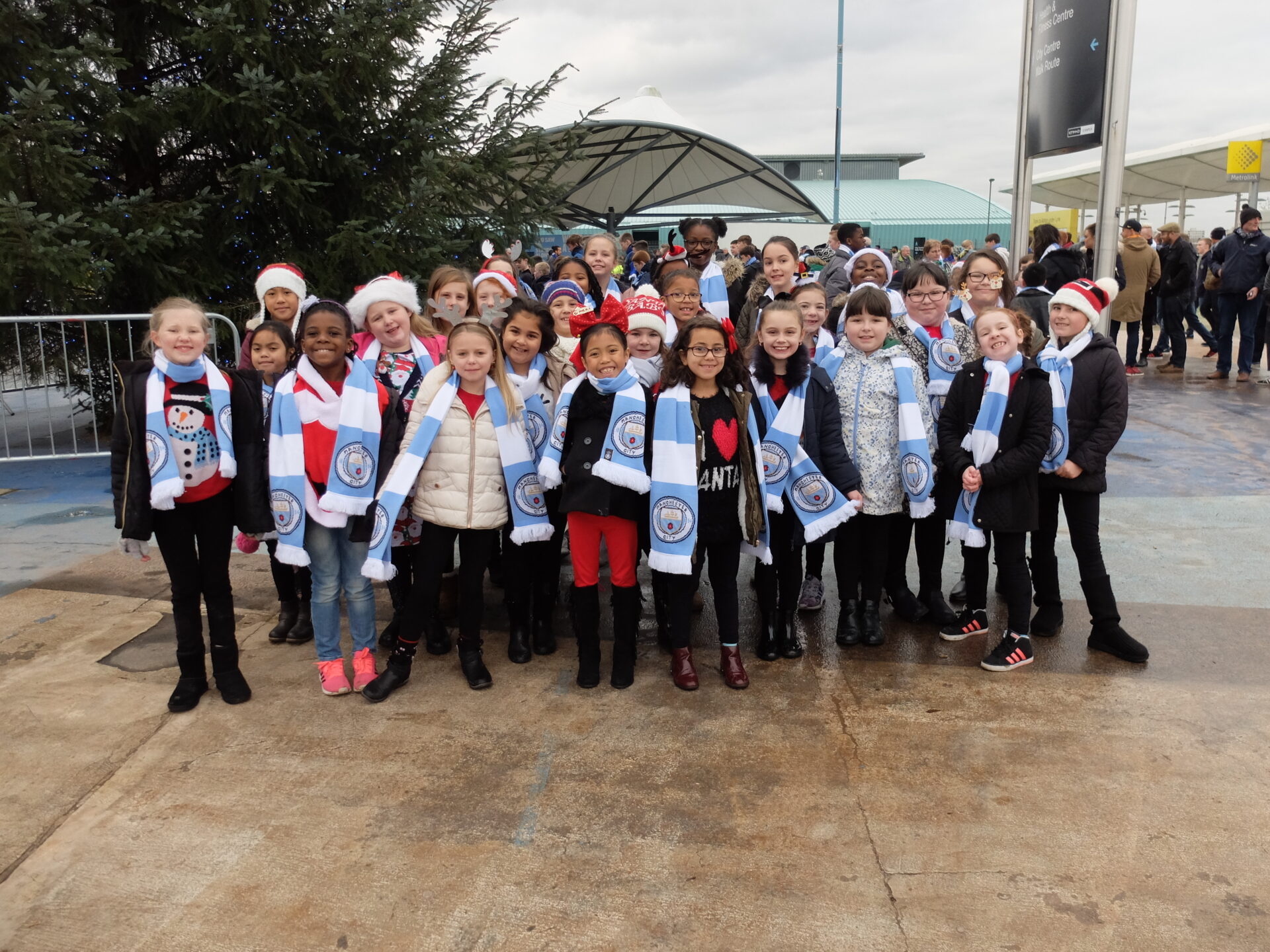
“But it was only when you began to speak to fans that you could see that people hadn’t asked them certain things.
“They’ve not been able to express it, maybe to family or friends. And so that was interesting, but it is still comes back to a sense of belonging. You belong there.
“Liverpool have just won the league and I was there before the game for three hours taking photographs.
“And it was just great to see, to go back there after 12 years where it started, because obviously I went to other clubs and actually worked at some clubs.
“And to see women there with a different sense of belonging, like there was no question that they do belong in football.”
(Featured image by Jacqui McAssey)


